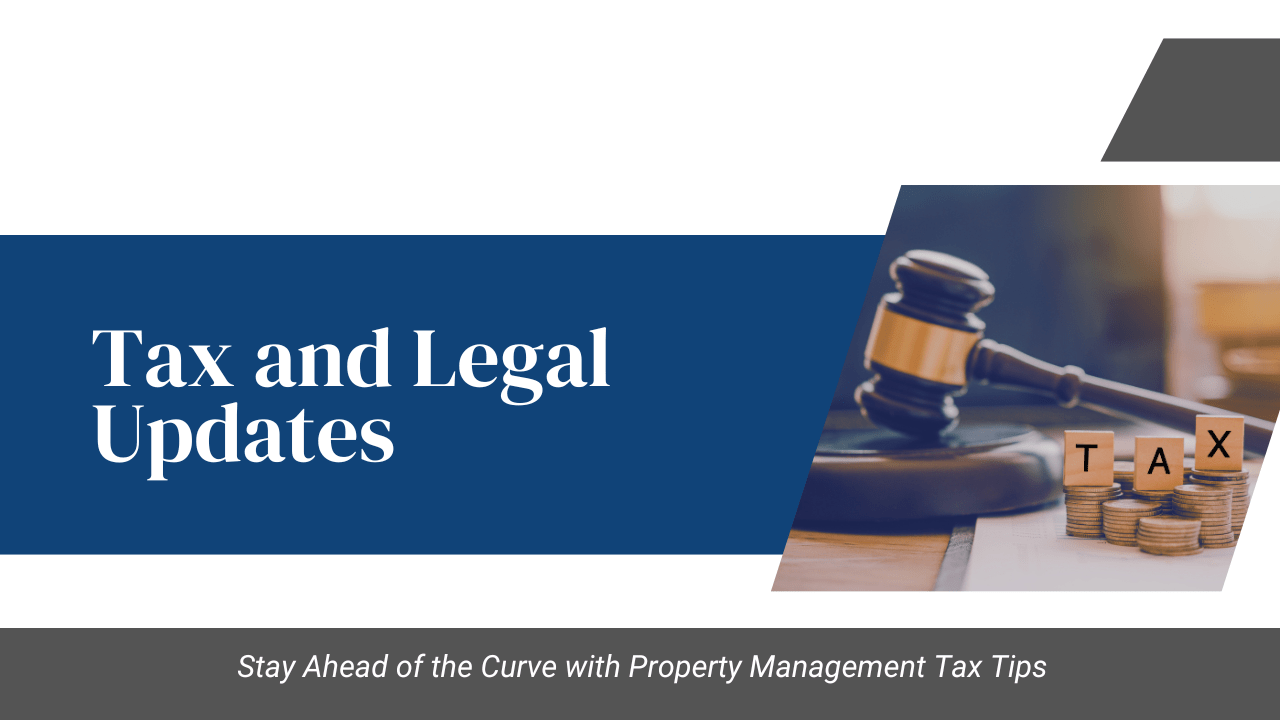It’s not always easy staying ahead of the curve when we’re talking about the San Jose rental market. Prices rise. Tenant demands shift. The competition ebbs and flows. If you’re an investor here, looking for ways to stay profitable can feel like a full-time job.
That’s just in the way you manage your rental values, your tenant selection, your upgrades and updates, and your retention strategies.
There are also the laws and the regulations that are always shifting, keeping owners and investors forever on their toes.
We’re here to help. As professional San Jose property managers, we are constantly working with rental property owners and real estate investors in order to keep them profitable and free of stress and frustration.
Staying up to date with the legal landscape is part of what we do. Keeping owners and landlords compliant is important to us, especially considering California is a state known for its strict tenant protections.
The laws are always changing, and so are the tax requirements. Here’s a look at what you need to know.
San Jose Rental Property Laws: An Update
Perhaps the most important change to hit the San Jose rental market this year is the new restrictions on how much you can collect as a security deposit. Previously, landlords could ask for up to twice the monthly rent as a security deposit on an unfurnished rental home. The limit is now one month. You can ask for the equivalent of one month’s rent when you’re collecting a security deposit from your new tenants.
There are exceptions, of course. If you’re renting out only one or two homes or one or two properties with two units each, you can ask for up to twice the monthly rent as your security deposit amount.
The existing security deposits you have collected from tenants who are currently in place can remain unchanged. Just know that unless you’re exempt, you can only collect the equivalent of one month’s rent when you’re asking for a security deposit now.
Reviewing Rent Control and Eviction in San Jose
San Jose's Rent Control Ordinance applies to apartments built before September 7, 1979. It limits rent increases to a certain percentage annually, which is currently set at a maximum of 5%. Be aware that this percentage can change, so always verify the current rate every year for accurate compliance.
Owners should be aware that there’s an initiative on the ballot in November that would expand rent control laws across the state, reducing the limits that are put on the types of property subject to rent control. If Proposition 33 passes, rent control can extend to single-family homes and newer apartment buildings in cities like San Jose.
The Tenant Protection Ordinance is also something rental property owners in San Jose need to be aware of. It’s in place to protect tenants from unjust eviction. Landlords must provide a valid reason for eviction, such as non-payment of rent or lease violations. Understanding the acceptable grounds for eviction will help you avoid legal complications. Typically, you’re going to evict someone if they aren’t paying rent, if they’re violating the lease and refusing to come into compliance, or if they’re committing crimes on your property.
The Ellis Act allows landlords to remove rental units from the market. However, in San Jose, landlords must provide tenants with a specific notice period and relocation assistance if they intend to withdraw their rental units.
For properties with three or more units, landlords must provide just cause for eviction. Acceptable reasons include substantial lease violations or significant property damage caused by the tenant. This regulation ensures fair treatment of tenants and prevents arbitrary eviction. The statewide eviction laws are also requiring owners to pay relocation fees to tenants who have to move because their homes are no longer going to be rented out or because a landlord wants to move back into the property. New statewide laws require that the landlord or their immediate family member move into the property within 90 days and stay for at least a year.
Tax Updates for San Jose Rental Property Owners
Recent changes in California state tax laws, such as Prop 19, can influence property transfers and tax assessments. Be sure to evaluate how these changes could affect your San Jose properties and plan accordingly. Talk to your CPA or your tax accountant.
If you’re renting out a property in the short term, you’ll need to be sure you’re paying your Transient Occupancy Tax (TOT). In San Jose, the TOT is levied at a rate of 10% on the total amount paid by guests for lodging, which is less than 30 days. Hosts are expected to collect this tax from their guests and remit it to the municipal government.
Make sure you’re aware of the restrictions and requirements around short-term rentals in San Jose, which are growing ever stricter. Start by familiarizing yourself with the Short Term Rental Ordinance. You have to be renting out a property that’s legally recognized by the city, and you are restricted to renting to tenants for up to 180 days per calendar year when you’re not present and hosting them yourself.
The Importance of Staying Compliant
 Adhering to San Jose rental laws and tax requirements is not only a legal obligation but also a strategic advantage for landlords and investors. Compliance helps maintain a positive reputation, attracts quality tenants, and minimizes the risk of legal disputes. Additionally, understanding and abiding by these laws can enhance property value and investment returns.
Adhering to San Jose rental laws and tax requirements is not only a legal obligation but also a strategic advantage for landlords and investors. Compliance helps maintain a positive reputation, attracts quality tenants, and minimizes the risk of legal disputes. Additionally, understanding and abiding by these laws can enhance property value and investment returns.
We know that this isn’t always easy. We’ve highlighted only a few of the most important laws and legal updates. There are so many things to know about fair housing, habitability standards, Section 8 rentals, just cause eviction, and rent control. We can talk more about newer laws, such as those around organic waste recycling and e-Bike storage.
Let’s make sure you’re compliant. Contact us at Cornerstone Property Management, and we’ll discuss our best strategies for property management in San Jose.





